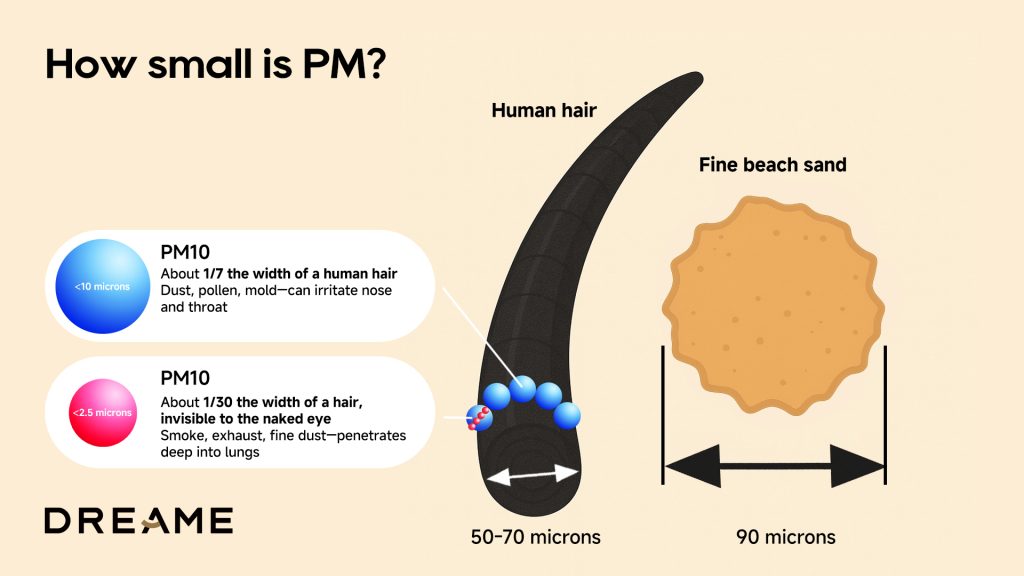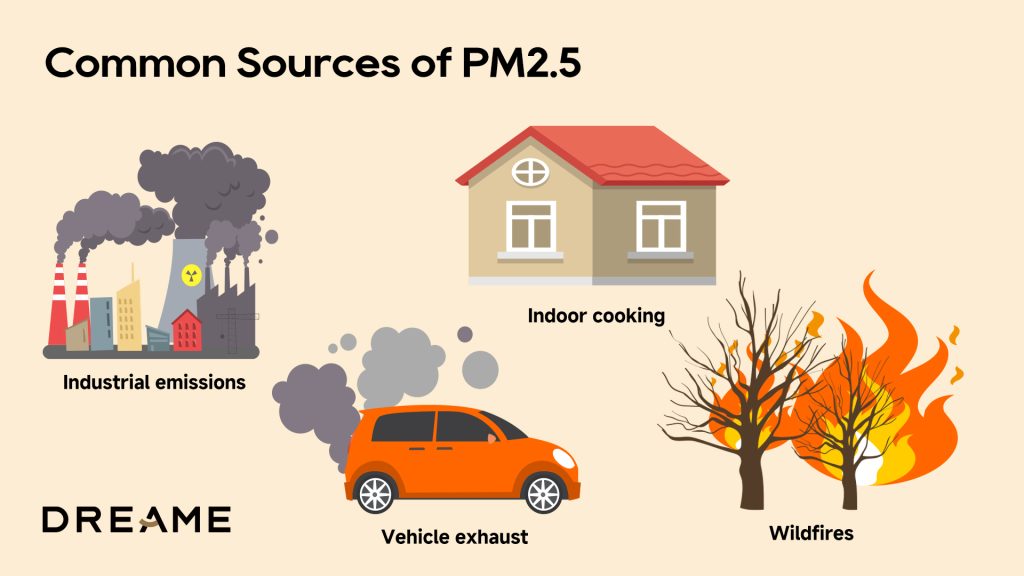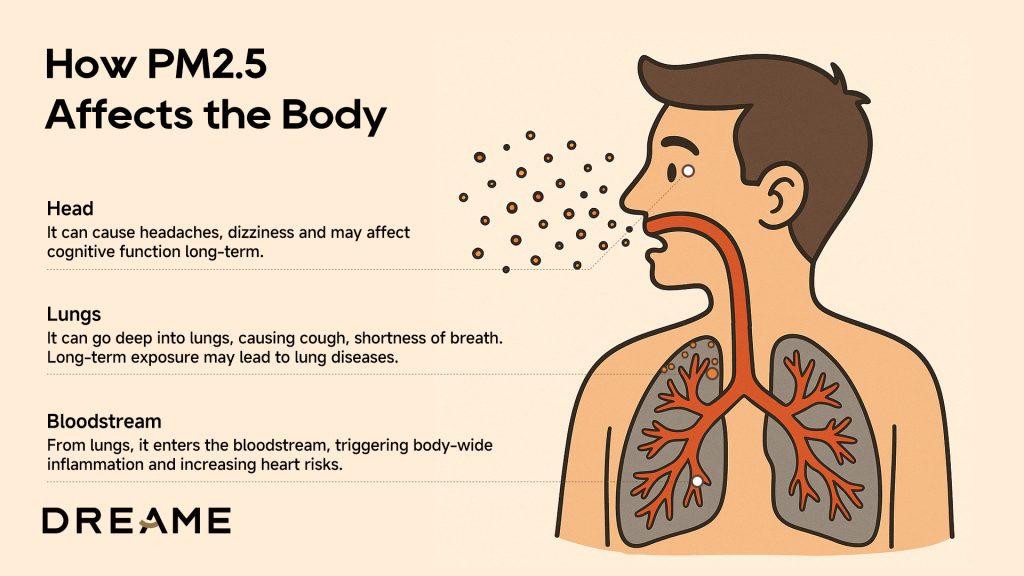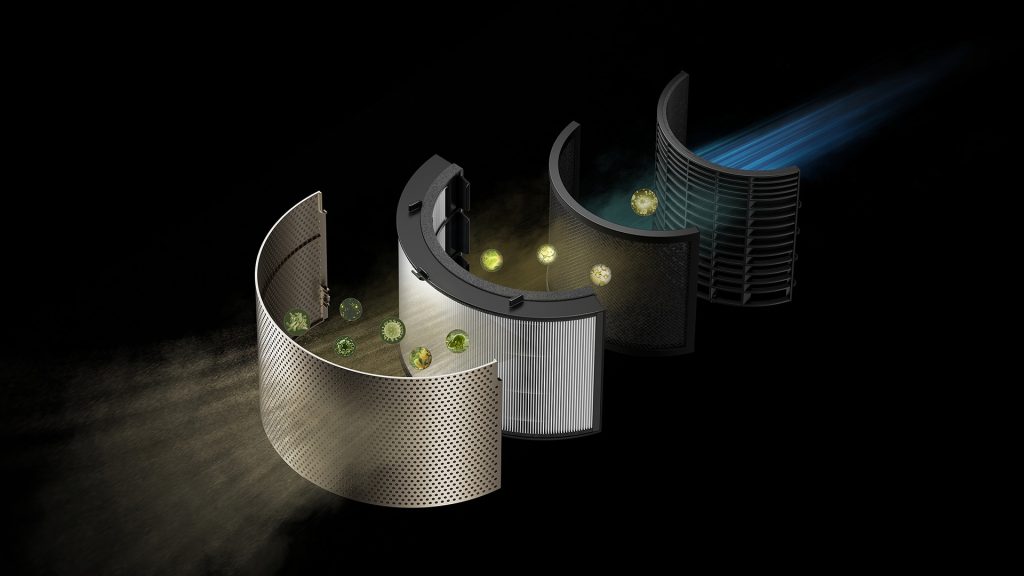
Are you experiencing constant headaches? It could be due to air pollution. If so, you need to prioritize your loved ones’ health. But what exactly does air pollution consist of? When talking about air pollution, we refer to particulate matter, or PM.
Particulate matter refers to suspended microscopic particles of solids and liquids in air. PM 2.5, thus means particles smaller than 2.5 micrometers. Since they are quite fine, they remain suspended in the air for a long time and can enter your body via inhalation. Hence, they are injurious to health.
This blog answers some of the most common questions about what PM 2.5 is, its effects on your health, and how you can reduce its exposure.
Table of Contents
- What Is PM 2.5?
- How Does PM 2.5 Affect Your Health?
- How Does PM 2.5 Affect Indoor Air Quality
- Do HEPA Filters Remove PM 2.5?
- How to Protect Yourself from PM 2.5
- Conclusion
What Is PM 2.5?
PM 2.5 refers to particulate matter having a 2.5 micrometer diameter or smaller. According to the EPA, this matter consists of liquid droplets or solid particles suspended in air. It’s so tiny that it can easily penetrate your bloodstream and lungs and cause health issues. The particles are 30 times smaller than a human hair, sneaking into your lungs like uninvited guests.

PM 2.5 comes from various sources,
- Vehicle exhaust
- Industrial emissions
- Wildfires
- Dust
- Indoor sources like cooking or smoking
Since PM 2.5 is a fine matter, it remains in the air for an indefinite time, and it’s ubiquitous, hence it’s hard to avoid. You are also at a prolonged risk of developing health issues due to PM 2.5 inhalation.

How Does PM 2.5 Affect Your Health?
PM 2.5 is not good for your health as it causes the following issues:
- Coughing
- Wheezing
- Aggravated asthma
Can PM 2.5 cause headaches? Yes, if you are constantly suffering from headaches, it could be due to high levels of PM 2.5.

In the long term, PM 2.5 causes severe health complications that are backed by scientific studies:
- Heart diseases
- Lung cancer
- Chronic respiratory issues
Some groups of people, like children, pregnant women, and individuals with pre-existing health conditions, are more vulnerable to PM 2.5 toxicity. For example, the WHO estimates that PM 2.5 contributes to millions of premature deaths annually.
How Does PM 2.5 Affect Indoor Air Quality
PM 2.5 is also present inside your home. Certain products, like cleaning supplies, air fresheners, and dust, consist of particulate matter that is present in the air. If the atmosphere outside your home contains higher levels of PM 2.5, the indoor air will more likely have a higher PM 2.5 level.
If your home has inadequate ventilation, PM 2.5 gets trapped in your air and causes health issues. Hence, it’s important to have proper ventilation to remove pollutants. Activities like cooking and smoking can significantly increase PM 2.5 concentrations. Therefore, you need to consider an air purifier and HEPA filter that we will discuss in the next part.
Do HEPA Filters Remove PM 2.5?
HEPA filters are extremely effective at removing PM 2.5. They are designed to capture particles as small as 0.3 micrometers. Hence, they easily trap most PM 2.5.
Several studies prove that HEPA filters can remove 99.97% of particles at 0.3 micrometers, and are equally effective for PM 2.5.
You are advised to use HEPA-equipped air purifiers indoors to trap PM 2.5 effectively. You should also replace your air filter regularly and ensure proper ventilation to eradicate air pollution.

How to Protect Yourself from PM 2.5
While PM 2.5 is risky for your health, you can adopt the following strategies to protect your and your loved ones’ health.
Indoor strategies:
- Use air purifiers with HEPA filters to trap PM 2.5 and keep your windows closed on high-pollution days.
- Avoid indoor sources of PM 2.5 like smoking, cooking, or burning candles.
Outdoor strategies:
- Check the air quality index (AQI) via apps and take necessary precautions.
- Wear N95 masks in areas with severe pollution, and limit outdoor exercise during periods of poor air quality.
You may place air-purifying plants in your home, maintain good ventilation, and clean your home regularly to minimize dust.
Conclusion
PM 2.5 is a serious health concern. It refers to suspended particles of solids and liquids in air. PM 2.5 particles are 2.5 in diameter. PM 2.5 causes several health issues like frequent headaches, coughing, sneezing, and chronic conditions. Therefore, it’s important to reduce it by investing in a HEPA air filter. These filters are scientifically proven to capture PM 2.5 effectively and purify your indoor air.
By understanding PM 2.5 and taking simple steps, you can breathe easier and protect your health. To get more information and air quality tips, visit our blog. You should also check your indoor and outdoor air quality index regularly to safeguard your health.
References